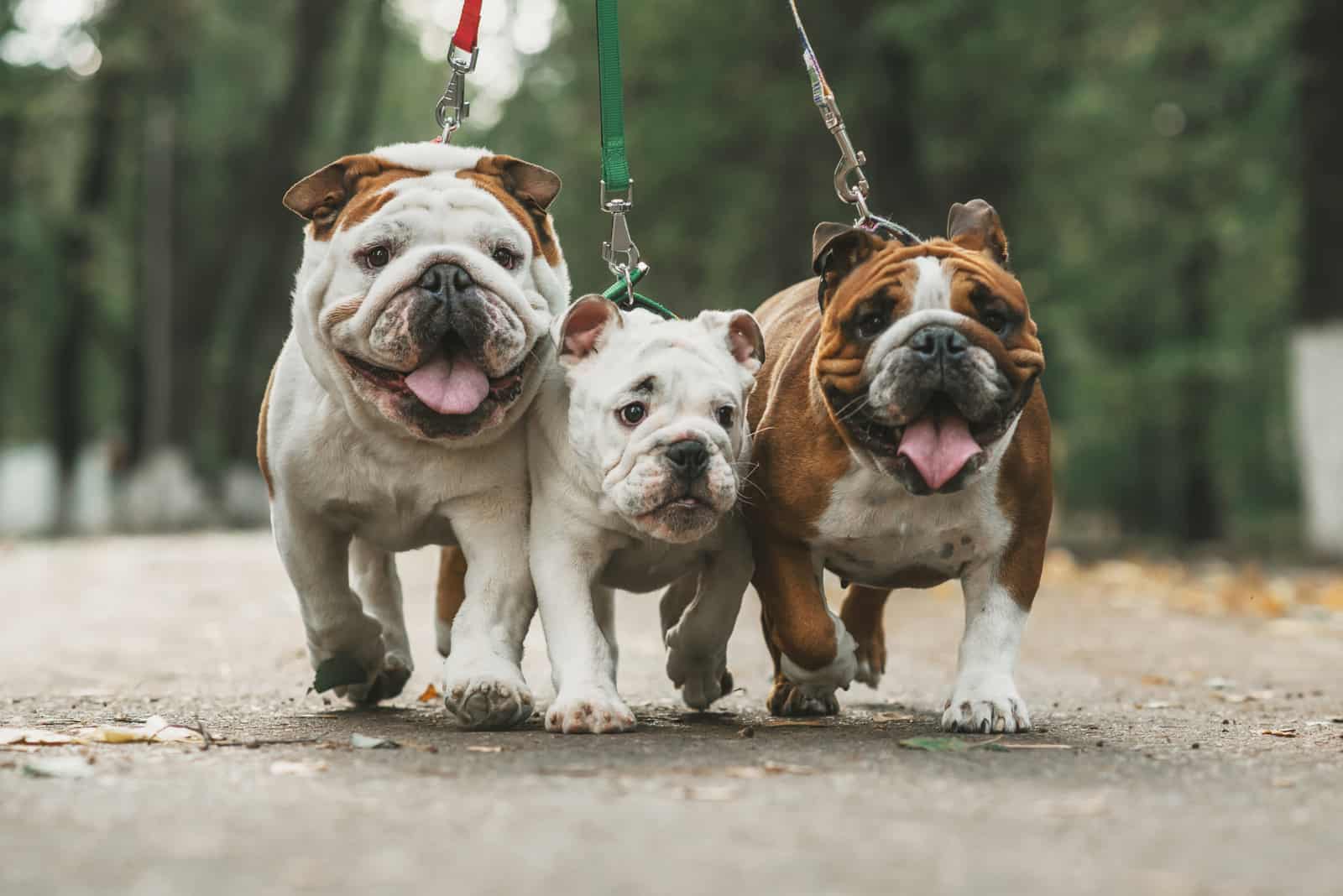British bulldog
Table of Contents
Table of Contents
Bulldog biologic is a fascinating and complex topic that has been studied for decades. From their distinctive wrinkled faces to their loyal personalities, bulldogs have captured the hearts of many. In this article, we will delve deeper into the biologic of bulldogs, exploring what makes them unique and what they require for optimal health.
While bulldogs are beloved for their loyal personalities and affectionate nature, their biologic makes them prone to certain health issues. These issues include respiratory problems, hip dysplasia, and skin infections, among others. Understanding these pain points is essential for providing the best possible care for your furry friend.
The target of bulldog biologic is to explore the physical characteristics that make bulldogs unique and to help pet owners understand their specific needs. This includes everything from their physical build to how they digest their food.
In summary, bulldogs are a special breed with distinct biologic characteristics. Understanding these features is essential for providing the best possible care for your furry friend. From their droopy eyes to their wrinkled faces, bulldogs are one of a kind.
Bulldog Biologic: Understanding their Physical Build
As a bulldog owner myself, I have seen firsthand how their unique physical build impacts their daily lives. Bulldogs have a stocky, muscular build that puts a lot of strain on their joints, especially their hips. This can lead to hip dysplasia, which can cause pain and discomfort for your furry friend.
In addition to joint issues, bulldogs are also prone to respiratory problems due to their flat faces. This condition, known as brachycephalic syndrome, can cause breathing difficulties and even make it impossible for them to exercise for extended periods.
 Understanding these physical characteristics is crucial for providing the best possible care for your bulldog. Ensuring regular exercise and a healthy diet can help maintain their weight and joint health while avoiding over-exertion in hot weather can help prevent respiratory issues.
Understanding these physical characteristics is crucial for providing the best possible care for your bulldog. Ensuring regular exercise and a healthy diet can help maintain their weight and joint health while avoiding over-exertion in hot weather can help prevent respiratory issues.
Bulldog Biologic: Digestion and Nutrition
Bulldogs require a specific diet to meet their nutritional needs. Due to the strains their muscles put on their bones and joints, they require a diet that is high in protein to promote muscular development and growth. However, overfeeding can also lead to weight gain and other health problems.
 To ensure your bulldog’s diet is balanced, it’s essential to work with a veterinarian to monitor their weight and adjust their diet as required. This can include everything from high-quality kibble to raw food, depending on your pet’s specific needs.
To ensure your bulldog’s diet is balanced, it’s essential to work with a veterinarian to monitor their weight and adjust their diet as required. This can include everything from high-quality kibble to raw food, depending on your pet’s specific needs.
Bulldog Biologic: Grooming and Care
Bulldogs require regular grooming due to their sensitive skin and wrinkles, which can trap dirt and debris. Grooming can include everything from weekly baths to ensuring their ears and eyes are clean and free of infection.
 It’s also important to ensure they receive regular exercise and maintain a healthy weight to reduce strain on their joints, hips and spine. Additionally, yearly checkups with a veterinarian can help catch and treat any potential health issues before they become more serious.
It’s also important to ensure they receive regular exercise and maintain a healthy weight to reduce strain on their joints, hips and spine. Additionally, yearly checkups with a veterinarian can help catch and treat any potential health issues before they become more serious.
Bulldog Biologic: Training and Socialization
Bulldogs are known for their independent nature and fierce loyalty, making them exceptional pets. However, without proper training and socialization, their biologic traits can lead to unwanted behaviors, including aggression and barking.
To help your bulldog thrive, it’s important to invest in proper training and socialization. This can include everything from obedience classes to regular playtime with other dogs and people. Additionally, providing them with plenty of mental stimulation can help reduce anxiety and prevent destructive behaviors.
Question and Answer
Q: Are bulldogs prone to hip dysplasia?
A: Yes, bulldogs are prone to hip dysplasia due to their stocky build, which puts a lot of strain on their joints. Regular exercise and a balanced diet can help prevent this condition.
Q: Do bulldogs require a special diet?
A: Yes, bulldogs require a diet that is high in protein to promote muscular development and growth. However, overfeeding can also lead to weight gain and other health problems.
Q: How often should I groom my bulldog?
A: Bulldogs require regular grooming to keep their wrinkle-prone skin healthy and free of debris. Weekly baths, regular brushing, and cleanings of their ears and eyes are essential.
Q: Is socialization important for bulldogs?
A: Yes, socialization is crucial for bulldogs to avoid unwanted behaviors. Regular playtime with other dogs and people, as well as obedience classes, can help them thrive.
Conclusion of Bulldog Biologic
In conclusion, bulldogs have a unique biologic that requires specialized care and understanding. From their physical build to their nutritional needs, bulldogs are a one-of-a-kind breed that requires a dedicated and compassionate owner. By investing in proper training, nutrition, and care, you can help your bulldog thrive and experience a long and happy life by your side.
Gallery
Bulldog Breed Guide - Learn About The Bulldog.

Photo Credit by: bing.com /
Bulldog - Puppies, Rescue, Pictures, Information, Temperament, Characteristics | Animals Breeds

Photo Credit by: bing.com / bulldog
Bulldog Breed Guide - Learn About The Bulldog.

Photo Credit by: bing.com / bulldog breeds breed snapshot guide
British Bulldog - Stud Dog West Midlands - Breed Your Dog

Photo Credit by: bing.com / bulldog british dog dogs breed listing
Know The Facts About An English Bulldog | Pets Nurturing

Photo Credit by: bing.com / bulldog english pets facts know






